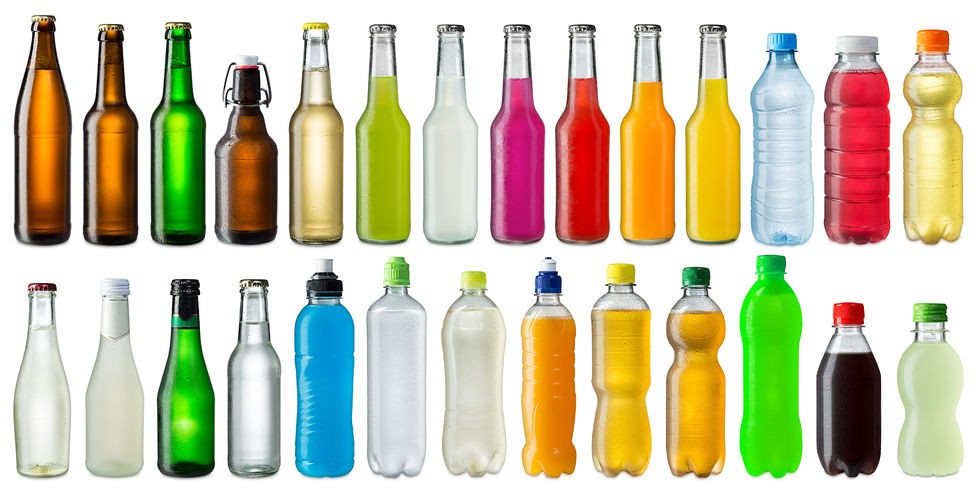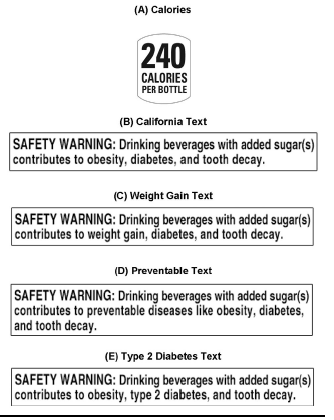Whether it’s soda or energy drinks, teenagers consume a lot of sugary beverages. Health warning labels on sugary beverages may help sway a few teens away from these drinks, at least hypothetically, finds a recent study.
The study was published in the American Journal of Preventive Medicine.
Helping teens drink fewer sugary beverages is important because too many can lead to weight gain – with teens taking in an estimated 280 calories a day from sugary drinks, according to one study. That weight gain can stick into adulthood. And too much body fat increases the risk of many common adult cancers, along with other chronic diseases.

This study asked 2,200 adolescents to take an online survey, imagining they wanted to buy a beverage from a vending machine. The 12 to 18 year olds were randomly divided into six groups and shown images of 20 drinks, ranging from sodas and sports drinks to lemonade and seltzer waters. Some of these beverages had no added sugar. One group saw no warning label on the bottles; another saw calories listed; and the other groups saw various versions of health warning labels (below).

Source: Eric M. VanEpps et al. The Influence of Sugar-Sweetened Beverage Warning. AJPM, 11/16.
Among the group who saw no label, the control, a little over three quarters selected a sugary beverage.
The groups that saw three of the warning labels selected fewer sugary beverages from the hypothetical vending machine compared to the no-label group. For example, among the group who saw no label, almost 8 of 10 teens (77 percent) selected a sugary beverage compared to 6 of 10 (61 percent) teens who saw the label warning of type 2 diabetes. Calorie labels alone did not reduce teens choice of selecting sugary beverages compared to the no-label group.
When asked what drinks they wanted coupons for, teens in all four warning labels groups chose fewer coupons for sugary beverages compared to the no-label.
When they were asked to guess how many calories were in a sugary beverage, teens who had seen the calories on the bottle guessed double the calories, from an average of 91 calories in the no-label group to 180 calories. (A 12-ounce can of sugary soda has about 150 calories.)
The influence of warning labels on sugary beverages is becoming an increasing area of study because several cities and states have introduced warning label bills. So far those bills have failed. An earlier study this year found that health warning labels on sugary beverages can influence parents choices. Given there are no actual warning labels yet, this study was also hypothetical, a major limitation.
This study on teens was commissioned by the Healthy Eating Research Program of the Robert Wood Johnson Foundation. One author (Dr. Roberto) is supported by the National Institute On Aging.





